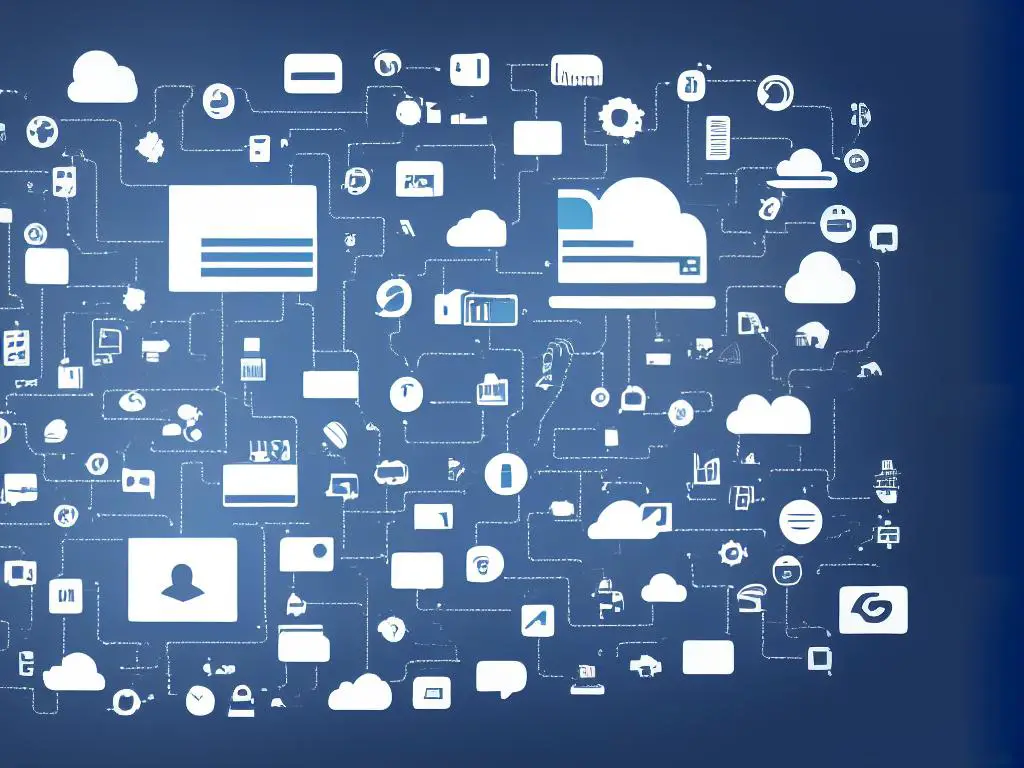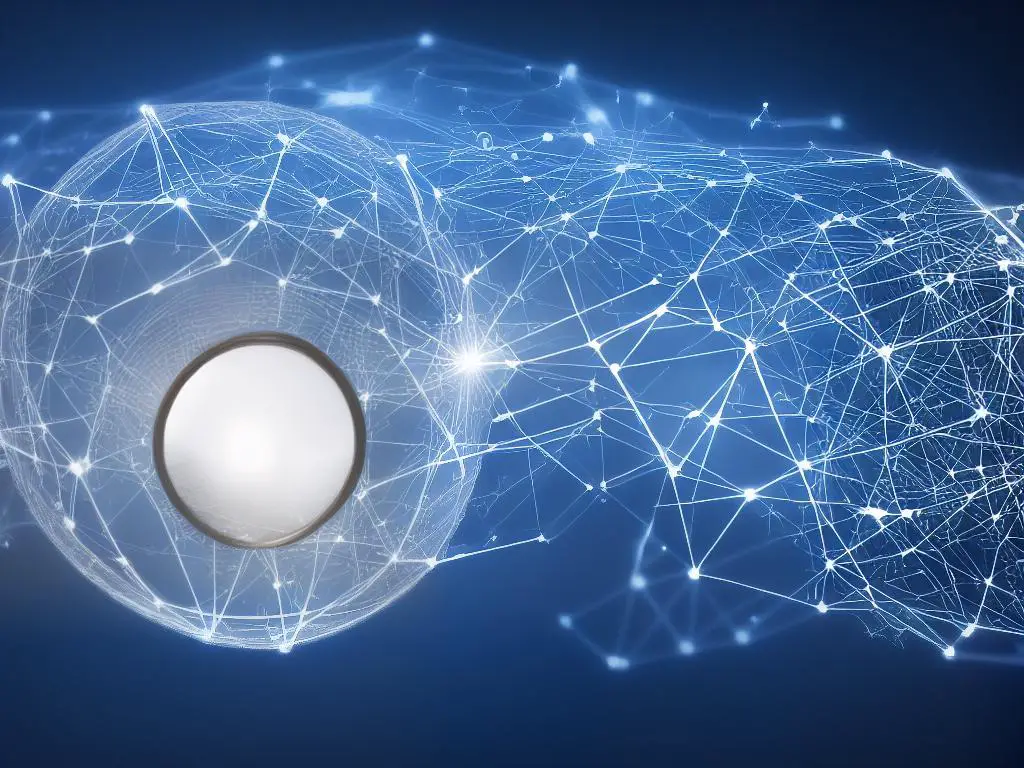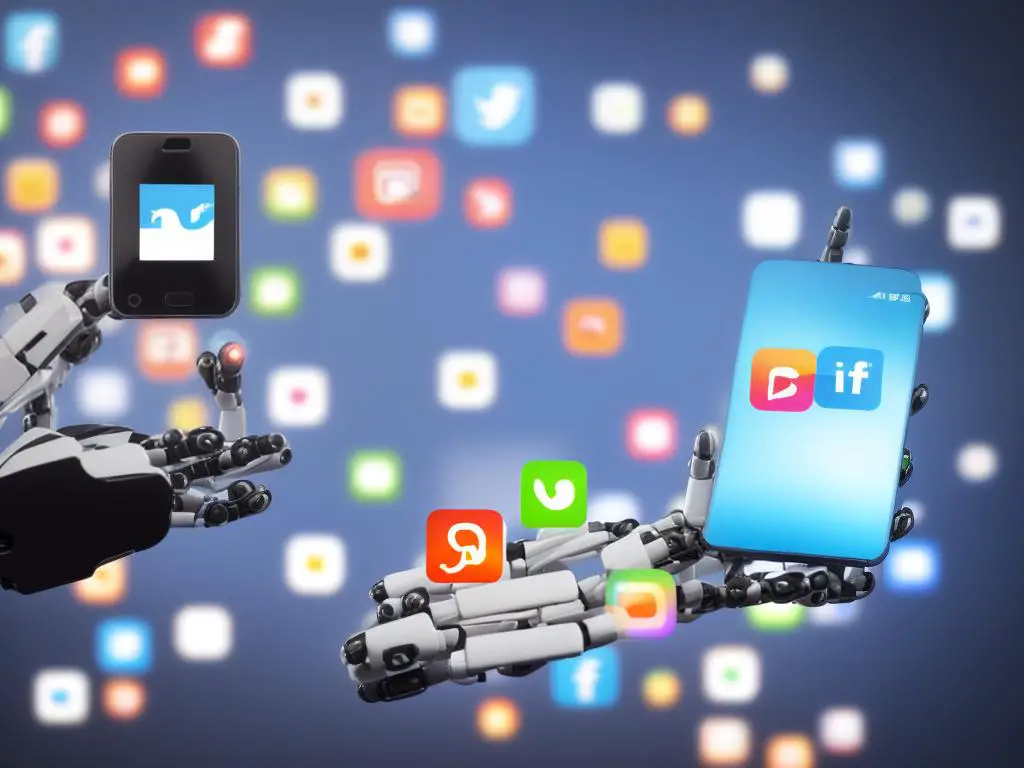As the digital landscape continues to evolve, marketers and advertisers must adapt to the growing impact of artificial intelligence (AI) in their fields. This innovation promises to revolutionize the way businesses approach their marketing strategies by providing personalized experiences, deeper insights, and more efficient processes.
Delving into the world of AI-powered marketing and advertising, this essay explores its potential across a range of applications, from customer segmentation to advertising optimization and beyond.
Understanding AI and Machine Learning
Table of Contents
- 1 The Power of Artificial Intelligence, Machine Learning, and Deep Learning
- 2 The Role of AI in Marketing and Advertising
- 3 Deep Learning in Marketing and Advertising
- 3.1 AI in Customer Segmentation
- 3.2 AI-Powered Content Creation
- 3.3 AI in Advertising Optimization
- 3.4 AI-Driven Marketing Analytics
- 3.5 AI in Email Marketing
- 3.6 AI in Social Media Marketing
- 3.7 A Revolutionized Customer Service Experience
- 3.8 Sentiment Analysis for Better-Informed Decisions
- 3.9 Improved Targeting and Personalization
- 3.10 AI-Powered Content Analysis
The Power of Artificial Intelligence, Machine Learning, and Deep Learning
Understanding the differences between artificial intelligence (AI), machine learning, and deep learning is essential in the realm of marketing and advertising. AI refers to the development of computer systems that can perform tasks or make decisions typically requiring human intelligence. Machine learning is a subset of AI, focused on enabling computers to learn and adapt from experience. Deep learning is an advanced subset of machine learning that uses interconnected artificial neurons to process data and make decisions.
The Role of AI in Marketing and Advertising
AI and machine learning have the potential to revolutionize the marketing and advertising industry by automating various aspects of the customer journey, improving targeting capabilities, and delivering personalized content. Machine learning algorithms can analyze extensive datasets to identify patterns and correlations and deliver highly-targeted ad campaigns. Additionally, AI-powered content creation tools and recommendation systems can tailor user experiences, resulting in higher engagement rates and improved customer satisfaction.
Deep Learning in Marketing and Advertising
Deep learning models have revolutionized the realm of marketing and advertising by outperforming traditional AI algorithms in tasks such as image recognition, natural language processing, and user behavior prediction. By understanding and interpreting human emotions through textual and visual data, AI platforms equipped with deep learning capabilities can optimize brand communication and enhance the effectiveness of ad campaigns.

AI in Customer Segmentation
One of the most significant advancements in the field of marketing and advertising, alongside deep learning models, is the integration of artificial intelligence (AI) technology to streamline customer segmentation. AI-driven customer segmentation allows businesses to efficiently identify potential customers and tailor their marketing strategies accordingly.
By utilizing machine learning algorithms and data analysis, AI presents a valuable opportunity for creating highly targeted and personalized marketing campaigns with the potential to significantly increase return on investment (ROI).
AI-driven customer segmentation works by analyzing vast amounts of data, including demographic information, browsing and purchasing behavior, social media interactions, and other online activities. Using this data, AI algorithms identify patterns and trends that human marketers may miss.
This capability allows for the creation of detailed customer profiles and the segmentation of a business’s target audience into smaller, more specialized groups. By doing so, companies can more effectively tailor marketing messages and strategies to reach various customer segments with highly relevant content, increasing engagement and conversion rates.
Another advantage of using AI in customer segmentation is its ability to continuously learn and adapt marketing strategies in real-time. This dynamic approach means that as new data becomes available, AI can quickly identify potential changes or shifts in customer preferences, allowing businesses to adjust their marketing strategies accordingly.
In this way, AI-driven customer segmentation not only provides immediate benefits in targeting specific consumer groups but also proves valuable in maintaining the effectiveness of marketing campaigns over time.
Furthermore, using AI to analyze and predict customer behavior exposes opportunities to reduce customer churn and foster long-term customer loyalty. By understanding the individual needs and preferences of each customer segment, a business can develop personalized marketing campaigns, sales promotions, and products that better suited to the distinct desires and requirements of their clientele.
By delivering an enhanced customer experience, businesses can strengthen their relationships with consumers and encourage repeat business.
AI-driven customer segmentation is revolutionizing the way businesses approach marketing and advertising. By employing machine learning and data analysis, AI enables companies to identify potential customers, refine their marketing strategies, and deliver the right message at the right time to the right audience.
This ultimately results in improved customer engagement, increased conversions, and enhanced customer retention. As the field of AI in marketing and advertising continues to evolve, businesses that leverage these innovative technologies are well-positioned to gain a competitive edge in an increasingly saturated market.

AI-Powered Content Creation
One area where AI has made significant strides in marketing and advertising is content creation. AI-powered content creation involves the use of automated copywriting tools, chatbots, and AI-generated visuals to deliver personalized and impactful messages to consumers.
By employing these technologies, marketers and advertisers can create compelling content at scale, reaching a wider audience while increasing efficiency and reducing the time spent on manual tasks.
In summary, the integration of artificial intelligence in marketing and advertising offers numerous opportunities for growth, and businesses that embrace these advancements are better equipped to thrive in a competitive market landscape.
Automated copywriting tools are an excellent example of AI’s potential in content creation. These tools use natural language processing (NLP) and machine learning algorithms to understand the context, tone, and style of a given piece of content.
They can then generate tailored, high-quality copy that aligns with the target audience’s preferences and needs. This ability to create customized messaging at scale allows brands to speak directly to their audience, enhancing engagement and nurturing long-lasting relationships.
Chatbots have become an integral part of many businesses’ marketing and customer service strategies. These AI-powered conversational agents can quickly answer customer questions, provide recommendations, or help users navigate through a website or product offering.
By analyzing user inputs and past interactions, chatbots can create personalized responses that cater to each individual’s needs, enabling more effective communication and stronger connections between brands and consumers. Moreover, chatbots allow businesses to be available for their customers 24/7, further improving customer satisfaction and loyalty.
In addition to text-based content, AI also plays a significant role in the creation of visual content for marketing and advertising campaigns.
AI-generated visuals leverage machine learning to analyze various factors, such as color schemes, design trends, and consumer preferences, to produce unique and eye-catching visuals that captivate audiences. This technology enables marketers to create massive volumes of diverse and relevant content while maintaining high aesthetic standards, all without the need for extensive manual input or graphic design expertise.
Striking the right balance between AI-powered content creation and human creativity is crucial in marketing and advertising.
AI serves as a tool to augment human talent rather than replacing it entirely. Combining AI’s efficiency and adaptability with the uniquely human touch of imagination and empathy leads to compelling campaigns that connect with consumers on a deeper level.

AI in Advertising Optimization
Artificial intelligence (AI) has revolutionized the advertising industry, altering the way marketers approach advertising optimization. AI-backed programmatic advertising is one such innovation that has significantly impacted the marketing landscape.
Programmatic advertising refers to the automated process of buying and selling ad inventory, enabling marketers to target their audience more accurately by auctioning ad spaces for better returns on investment (ROI).
AI algorithms analyze user data, demographics, and browsing behavior in real-time to deliver the most appropriate ad for each viewer. This ensures that the right ads reach the right people at the right time, considerably improving ad performance.
Another critical aspect of AI in advertising is creative optimization. While marketers have traditionally relied on human creativity for ad campaigns, AI has expanded the boundaries of advertising by making ads smarter and more engaging.
AI algorithms can analyze vast amounts of data from various sources, such as social media, past ad campaigns, and customer preferences, to optimize ad content, colors, images, and copy. They can also recommend changes in real-time, enabling marketers to adapt their marketing strategies for better results.
Effectively targeting the right audience is also a pivotal aspect of AI in advertising optimization. As competition in the digital space increases, sending the right message to the right people is more crucial than ever.
AI algorithms can process and analyze large data sets, such as user preferences, behaviors, and interests, to create detailed customer profiles. This allows marketers to narrow down their target audience and create tailor-made messages, ultimately increasing conversion rates and cutting advertising expenses.

AI-Driven Marketing Analytics
Moving beyond advertising optimization, AI-driven marketing analytics is transforming how marketers analyze consumer data, allowing them to predict behaviors, target customers more effectively, and optimize their marketing strategies.
By leveraging the power of artificial intelligence, companies can process vast amounts of data and uncover insights that would otherwise remain hidden or be too time-consuming to manually analyze.
Enhanced ad performance can be attributed to AI’s ability to analyze and learn from audience reactions to the advertisements served.
By continuously monitoring ad engagement levels and adjusting the frequency, placement, or creative elements of ads, AI-powered advertising platforms can consistently deliver better results. In conclusion, AI is revolutionizing the marketing and advertising industry, providing unprecedented levels of precision and efficiency.
With AI-backed programmatic advertising, creative optimization, audience targeting, and marketing analytics, marketers can now deliver more relevant and engaging ads that resonate with their desired customers. As artificial intelligence continues to evolve, the possibilities for further advancements in the advertising field seem infinite, promising an even more dynamic and personalized digital marketing landscape for advertisers and consumers alike.
Predicting consumer behavior is a crucial aspect of AI in marketing and advertising, as it empowers businesses to forecast purchase patterns, customize product recommendations, and create personalized experiences for customers.
AI-driven real-time analytics also play an essential role in improving marketing efficiency. Unlike traditional data analytics methods, which can take hours or even days to process data, AI-driven solutions can provide insights in real time.
The integration of artificial intelligence (AI) into marketing and advertising platforms has revolutionized the industry by enabling companies to continuously adapt to changing customer behaviors and preferences.
As AI and machine learning algorithms become more prevalent, businesses have the opportunity to harness data-driven decision-making, automation, and enhanced personalization to optimize their strategies and connect with customers more effectively than ever before.

AI in Email Marketing
One of the areas where AI has made a significant impact is in email marketing. Through the use of advanced algorithms and data analysis, AI has improved personalization, deliverability optimization, and higher conversion rates.
This technological innovation allows marketers to create more targeted campaigns by delivering the most relevant content to each subscriber. As a result, engagement and conversions have seen substantial increases, highlighting the undeniable benefits of incorporating AI in marketing and advertising.
One of the remarkable advancements in AI-enhanced email marketing is personalization. Gone are the days when marketers could only segment customers based on limited demographic information.
Today, AI algorithms can analyze various data points – including browsing history, past purchases, and even the links the user clicks within an email – to create highly personalized content. This degree of customization extends to subject lines, email copy, images, and even the time of day the email is sent.
By individually tailoring the content and delivery to each subscriber, marketers can foster deeper connections and drive higher open and click-through rates.
Another significant area of AI application in email marketing is deliverability optimization. Maintaining a healthy sender reputation is critical in ensuring that your emails reach your subscribers’ inboxes rather than disappearing into spam folders.
AI-powered tools can provide insights into factors affecting your sender reputation, such as spam complaints, bounce rates, and engagement metrics, enabling marketers to make data-driven decisions. Additionally, machine learning algorithms can recommend optimal sending frequencies and segmenting strategies to maintain strong deliverability rates while minimizing the risk of subscriber burnout.
Increasing conversion rates is a crucial objective for many email marketers, and AI technologies present new opportunities to achieve this goal. AI-powered email platforms can predict user behavior and automatically adjust the content and timing of marketing emails to maximize conversions.
For instance, machine learning algorithms can determine the best time to send a promotional email or when a subscriber is most likely to be receptive to a particular type of offer. This level of granular targeting enables marketers to achieve greater return on investment (ROI) from their email campaigns.
Moreover, AI serves as a valuable aid in A/B testing and result analysis, providing a more efficient approach when optimizing email marketing campaigns based on reliable data. As machine learning models continuously learn from collected data points, they offer deep insights into subscriber preferences and trends.
This information is crucial in refining email marketing strategies, resulting in more effective campaigns that resonate with the target audience and ultimately drive customer engagement and conversion rates to new heights.

AI in Social Media Marketing
Another impactful application of AI in marketing is within the realm of social media. Artificial intelligence (AI) has emerged as a game-changing tool that enables marketers to gain an unparalleled understanding of customer behavior and preferences. This knowledge paves the way for smarter campaigns that improve user experience while enhancing brand value.
A Revolutionized Customer Service Experience
By utilizing intelligent chatbots, companies can now provide instant and round-the-clock assistance to customers on social media platforms like Facebook Messenger, WhatsApp and their websites. This not only improves the quality of customer service but also frees up valuable resources.
Sentiment Analysis for Better-Informed Decisions
With AI-powered sentiment analysis, social media marketers can gauge the overall sentiment of consumers towards particular products, services, or brands. By preemptively addressing customer concerns, marketers can streamline their campaigns and deliver a more satisfying customer experience.
Improved Targeting and Personalization
AI algorithms can predict user behavior, preferences, and interests accurately, allowing marketers to create more precise ad targeting criteria. Additionally, natural language processing enables marketers to tailor ad copy, visuals, and calls-to-action to resonate better with their audience.
AI-Powered Content Analysis
By analyzing vast amounts of data, AI algorithms can uncover patterns, trends, and preferences of the target audience. By examining this data, marketers can make better-informed decisions while creating and curating content that resonates with their audience. Personalized content recommendations for individual users can result in higher engagement and conversion rates.

Ultimately, the integration of AI into marketing and advertising opens up a world of possibilities for businesses to better understand, engage, and cater to their target audiences. By harnessing the power of artificial intelligence, companies can not only optimize their marketing strategies, but also create more meaningful connections with customers.
As AI continues to advance, the possibilities for its applications in marketing and advertising appear limitless – and early adopters of these cutting-edge technologies are set to reap the rewards of their forward-thinking approach.

I’m Dave, a passionate advocate and follower of all things AI. I am captivated by the marvels of artificial intelligence and how it continues to revolutionize our world every single day.
My fascination extends across the entire AI spectrum, but I have a special place in my heart for AgentGPT and AutoGPT. I am consistently amazed by the power and versatility of these tools, and I believe they hold the key to transforming how we interact with information and each other.
As I continue my journey in the vast world of AI, I look forward to exploring the ever-evolving capabilities of these technologies and sharing my insights and learnings with all of you. So let’s dive deep into the realm of AI together, and discover the limitless possibilities it offers!
Interests: Artificial Intelligence, AgentGPT, AutoGPT, Machine Learning, Natural Language Processing, Deep Learning, Conversational AI.


